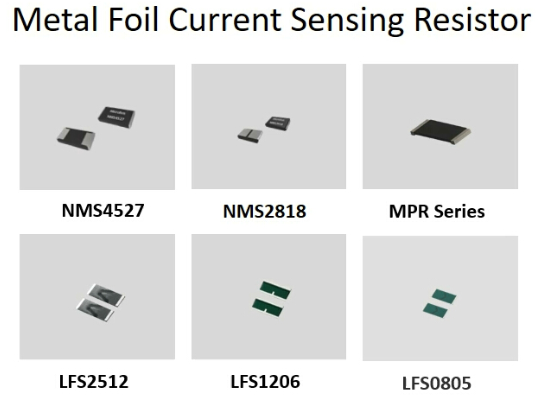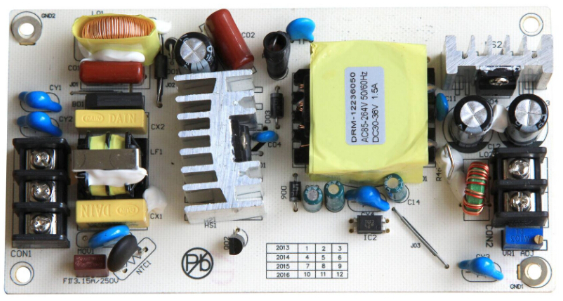Position:Home » Technical Articles
What is the Effect of Resistance Material on Resistor Performance?
Writer:Microhm Page View:Date:2019-04-09
Metals used as resistive materials should have the characteristics of high electrical conductivity, sufficient mechanical strength, not easy to oxidize, not easy to corrode, easy to process and weld. The resistance material has a great influence on the resistance performance. Generally the resistance materials used in the high-end precision resistor are all high precision type. This kind of precision alloy material can make the performance of precision resistance more superior, the precision higher and temperature drift smaller.

Performance requirements of resistive materials
Copper, aluminum and its alloys are the most commonly used conductive metals, and other metals, such as precious metals, are used in some special occasions. Copper is the first widely used resistive material with good electrical conductivity and mechanical properties.
The conductivity of aluminum is about 62% of that of copper and the density is 33% of that of copper. The specific strength of aluminum is about 30% higher than that of copper. At the same time, the aluminum cross-sectional area is 168% of the copper cross-sectional area, while the aluminum weight is only 54% of the copper.
The development of modern science and technology requires that some electrical resistance materials not only have good electrical conductivity, but also have high strength, hardness and heat resistance, corrosion resistance, wear resistance and other comprehensive characteristics.
As a result, conductive copper alloys, aluminum alloys and composite metal conductors for different purposes have developed rapidly. The electric conductivity of conductive alloy is lower than that of pure metal, but the strength and heat resistance of the alloy are improved significantly.
A composite conductor made of two or more different metals by a certain composite process has many unique advantages, such as high strength, high hardness, high elasticity, good wear resistance, heat resistance, corrosion resistance, thermal conductivity, special magnetic and thermal expansion coefficient, etc.

Resistance of conductive metals
Resistance is an important index to measure the conductivity of metal and the main parameter of selecting conductive metal. The resistance of metal is called resistivity. In alternating current, alternating magnetic field is produced in the conductor, and the current is not uniformly distributed on the whole section of the conductor. The closer to the surface, the greater the current density, which is the skin effect. In order to reduce the influence of skin effect, the diameter of single wire and the structure of strands or hollow lines can be reduced. When the frequency is high, the surface can be coated with high conductive silver and other materials.

Main factors affecting resistance
The resistance of the metal rise with the increase of temperature. In general, that resistance is in a certain proportion to the temperature. When the temperature reach a certain range, the resistance performance begins to decrease, and as the temperature rise, resistance is likely to be broken down or burned down.
Resistance increase caused by cold deformation of pure metal. It is generally not more than 4%, For alloy, it is slightly higher.
Cold deformation of metal increases strength and hardness, decreases electrical conductivity and plasticity. Annealing can restore its performance. The mechanical properties of metals become worse when annealing temperature is too high or heating time is too long, but the change of resistance is not significant.

Performance requirements of resistive materials
Copper, aluminum and its alloys are the most commonly used conductive metals, and other metals, such as precious metals, are used in some special occasions. Copper is the first widely used resistive material with good electrical conductivity and mechanical properties.
The conductivity of aluminum is about 62% of that of copper and the density is 33% of that of copper. The specific strength of aluminum is about 30% higher than that of copper. At the same time, the aluminum cross-sectional area is 168% of the copper cross-sectional area, while the aluminum weight is only 54% of the copper.
The development of modern science and technology requires that some electrical resistance materials not only have good electrical conductivity, but also have high strength, hardness and heat resistance, corrosion resistance, wear resistance and other comprehensive characteristics.
As a result, conductive copper alloys, aluminum alloys and composite metal conductors for different purposes have developed rapidly. The electric conductivity of conductive alloy is lower than that of pure metal, but the strength and heat resistance of the alloy are improved significantly.
A composite conductor made of two or more different metals by a certain composite process has many unique advantages, such as high strength, high hardness, high elasticity, good wear resistance, heat resistance, corrosion resistance, thermal conductivity, special magnetic and thermal expansion coefficient, etc.

Resistance of conductive metals
Resistance is an important index to measure the conductivity of metal and the main parameter of selecting conductive metal. The resistance of metal is called resistivity. In alternating current, alternating magnetic field is produced in the conductor, and the current is not uniformly distributed on the whole section of the conductor. The closer to the surface, the greater the current density, which is the skin effect. In order to reduce the influence of skin effect, the diameter of single wire and the structure of strands or hollow lines can be reduced. When the frequency is high, the surface can be coated with high conductive silver and other materials.

Main factors affecting resistance
The resistance of the metal rise with the increase of temperature. In general, that resistance is in a certain proportion to the temperature. When the temperature reach a certain range, the resistance performance begins to decrease, and as the temperature rise, resistance is likely to be broken down or burned down.
Resistance increase caused by cold deformation of pure metal. It is generally not more than 4%, For alloy, it is slightly higher.
Cold deformation of metal increases strength and hardness, decreases electrical conductivity and plasticity. Annealing can restore its performance. The mechanical properties of metals become worse when annealing temperature is too high or heating time is too long, but the change of resistance is not significant.
Keywords:resistor
Latest News
- Resistor's role in measuring and correcting LED,,,
- Single through-hole resistors' characteristics ,,,
- Why shunt resistors for current sense applicati,,,
- Metal-film resistors with small size, high resi,,,
- 36W High-Current Shunt Resistors MMS8420,,,
- 1W Surface Mount Resistor MPR1206,,,
- An Overview of Microhm Electronics' Resistor Pr,,,
- More anti-sulfur resistors used in harsh envir,,,
- Resistance changes with temperature,,,
- 140W TO247 High Power Heatsinkable Resistor,,,
- MMS5930 is ideal for current sensing in industr,,,
- Shunt resistors selection for engineers' design,,,
- Considerations for choosing precision resistors,,,
- Ceramic Encased Cement Resistors NWH Series for,,,
- Resistors for Passive Balancing in Battery-Pow,,,
Hot Articles
- Microhm will take part in 10th Automotive World,,,
- Thanks for Visiting Microhm's Booth E5-5706 in ,,,
- Resistors in Short Supply: Blame Cars,,,
- New lunch: High Power Precision Shunt Resistor,,,,
- How to Test a Resistor,,,
- Innovative Technology, Future Electric: Electri,,,
- What is Precision Resistors?,,,
- SMD Resistors Sizes and Packages,,,
- The Construction and Features of Metal Film Res,,,
- What is a TO-220 Resisor?,,,
- Hot Selling Products: Precision Shunt Resistors,,,
- How to Calculate the Equivalent Resistance Valu,,,
- What is a Fixed Resistor?,,,
- Resistors in LED Circuits,,,
- Resistors Types and Materials Overview,,,
Resistance applications
- Surface Mount Resistor's Size and Package ,,,
- The Measurement Accuracy of Automotive Shunt is,,,
- Difference Between High Precision Resistors and,,,
- The Main Application for High Precision and Low,,,
- Carbon Film Resistors' Features and Application,,,
- Industrial Roberts Applied to Solar Photovoltai,,,
- Select the Right Resistor for Harmonic Filterin,,,
- Urbanization Development Bringing the Transform,,,
- The Four Important Functions of Alloy Resistors,,,
- Precision Resistors' Construction and TCR,,,
- Heater Blower Motor Resistor in Air Conditioner,,,
- BMS for New Energy Vehicle,,,
- Miniature future for passive electronic compone,,,
- Shunt Resistor MMS8420 for High Current Stable ,,,
- Why Zero-Ohm Resistors?,,,
